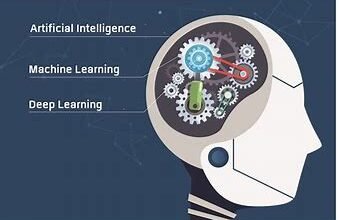Data science isn’t your only career option.

I wish I had a penny for every time I heard a person say they wanted to become a data scientist.
From computer programming majors to mechanical engineering graduates, everyone wants to break into the data science industry.
This is understandable, as the field carries with it the promise of a thick pay check and flexible working hours.
However, there are many other less popular career options in the data industry that pay very well. Some of these fields are growing at an even faster rate than data science.
In this article, I will provide a breakdown of the different career options within the data industry.
Data Engineer
A data engineer is someone who builds pipelines and prepares the data infrastructure for data scientists and analysts.
Data engineering is one of the fastest growing careers in the world now, and there has been a tremendous increase in the demand for data engineers in the past year.
Mid to large sized companies are starting to hire more data engineers, as these companies need a framework to handle large amounts of data.
The role of a data engineer will always exist. Without a proper data pipeline, it is impossible for data scientists run queries and build machine learning models.
Data engineers are the most essential part of the data science lifecycle, as it wouldn’t be possible to move on to the next phase without them.
Think of all the data you’ve dealt with in the past — in the form of csv files, Excel sheets, or MySQL databases. You might have created visualizations, built models, or performed some analysis on this data.
Now, imagine scaling up. Imagine dealing with a hundred million rows of user data, all of which are related to each other. This data needs to be updated every time the user performs a new action.
This is what a data engineer does.
A data engineer builds a pipeline that is able to collect, clean, and transform this data every time it comes in. And they need to do it in the most efficient, structured way possible, to make it easier for data scientists and analysts to extract as required.
The daily task of a data engineer is highly technical. To become a data engineer, you need to possess strong programming skills and database knowledge. You will need to have some knowledge of data structures, and understand the basics of distributed systems.
Data Analyst
A data analyst manipulates data to derive insights that creates business value. Data analysts are often confused with data scientists as their workflows overlap a lot, but there is one main difference between them.
A data analyst does not build machine learning models, and doesn’t do any kind of predictive modelling.
For example, if you were a data analyst at Zara and wanted some insights on H&M’s customers, you can extract data from H&M’s social media sites and customer review pages.
Then, you can perform an analysis to understand the type of demographic that usually shops at H&M, overall public sentiment around the brand, and their marketing strategy.
This is usually done with the help of some programming and visualization tools, so a data analyst needs to know how to code in at least one language and should know how to use tools like Tableau.
A data analyst does not need to know machine learning or predictive modelling.
Data Scientist
If you’re reading this article, you probably already know what a data scientist does. Chances are, you’re an aspiring data scientist trying to assess their career options within the industry.
A data scientist does everything a data analyst does — they extract and clean data, pre-process it, build visualizations, and try to derive insights to create business value.
The only difference is that they also do predictive modelling. They build machine learning models.
Let’s go back to the H&M analysis example. A data scientist would do all the things mentioned above to derive competitor insights. Then, they would also build a model predicting users who were most likely to stop buying from H&M and switch to a different brand.
Many companies hire the same individual to take on the roles of a data scientist and a data analyst.
To become a data scientist, you need to have programming and visualization skills, statistical knowledge, and the ability to build predictive models.
Machine Learning Engineer
A machine learning engineer is a person who deploys machine learning models. This person puts the models built by the data scientists into production.
Have you ever built a music recommendation system before?
Given a dataset of unique user IDs, you need to determine the artists and music that should be recommended to each person.
This sounds like a task that can easily be done by a data scientist.
However, imagine deploying a model like this on a music streaming app like Spotify.
This is where things become complicated.
Spotify has millions of users. What happens every time new users register onto the app? Every time someone clicks on a new song or artist to listen to?
The machine learning model needs to process all this new data immediately and come up with recommendations for each user.
Models built by data scientists need to reach the end user. These models need to be deployed so it can process user data in real time and come up with predictions.
A machine learning engineer does this. They scale machine learning models and put them into production, and ensure that the models can be accessed by a large number of users.
To become a machine learning engineer, you need to have strong programming and software engineering skills. You also need to have a basic understanding of machine learning frameworks.
Conclusion
Data science might be the most hyped up data related career at the moment, but it certainly isn’t the only one.
The data industry is only going to grow. Everyday, there is more than 1.14 trillion MB of data being generated.
As the industry grows, so will the demand for data related careers.
To make use of this data, the industry needs a lot more than just data science skills. Data engineers, analysts, and machine learning engineers are necessary for any successful data science project.




